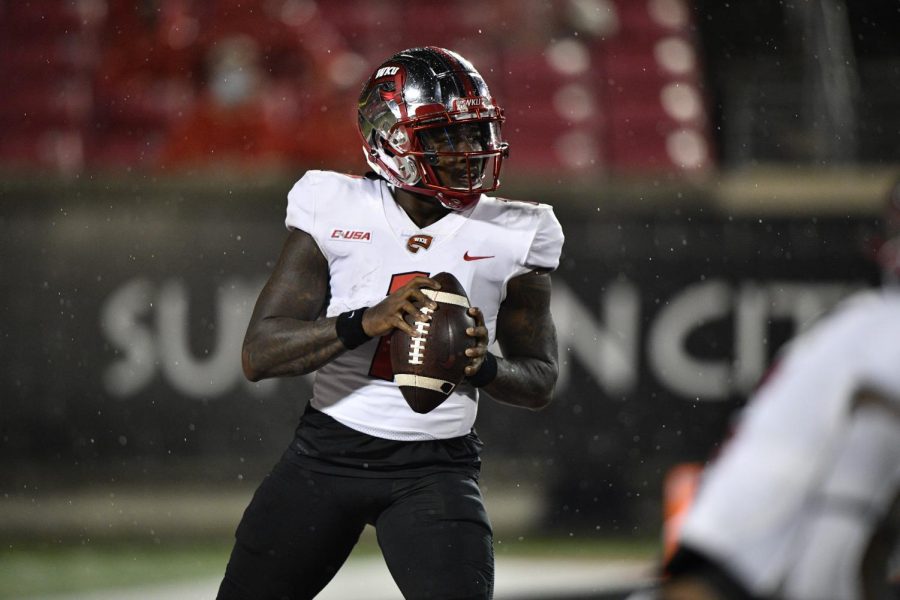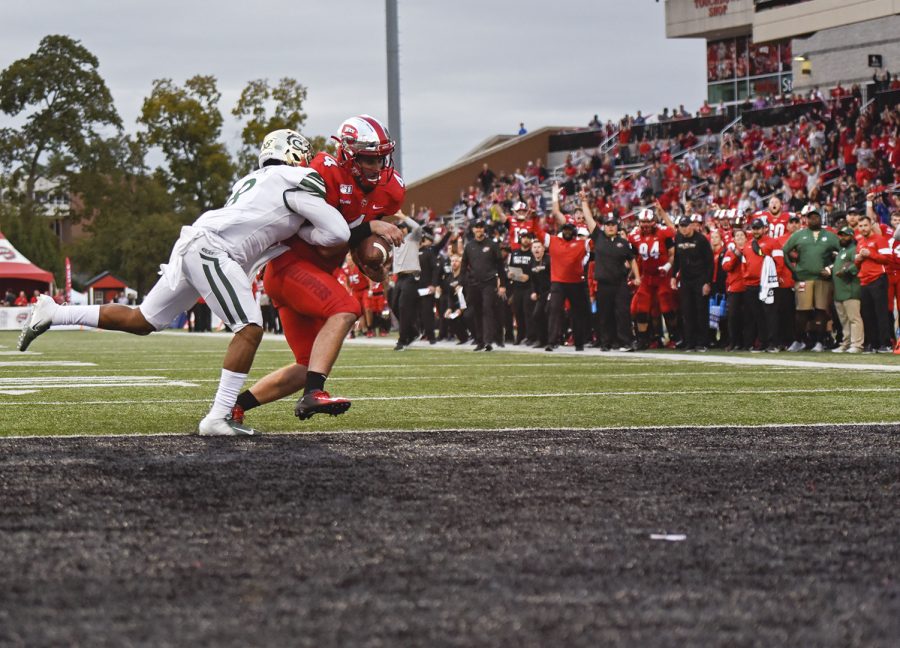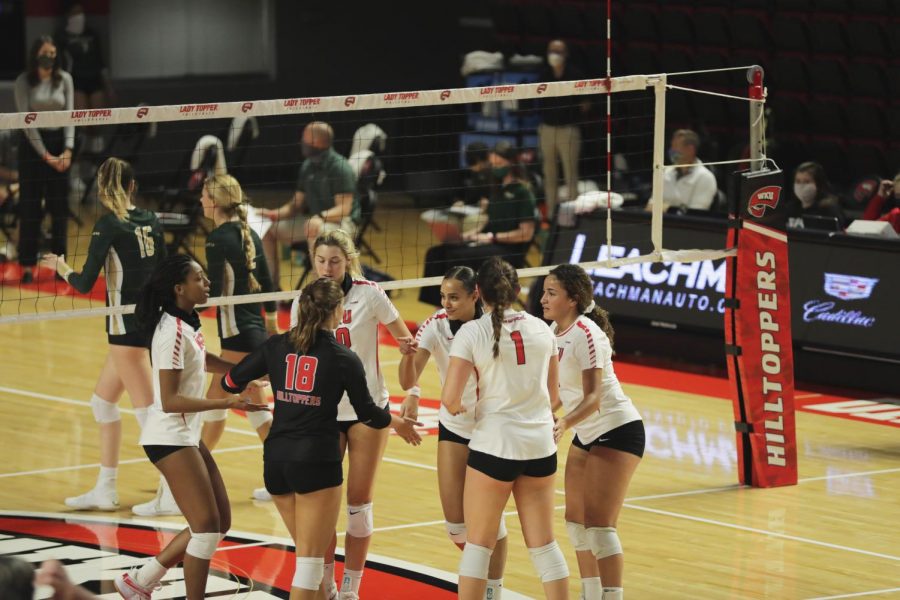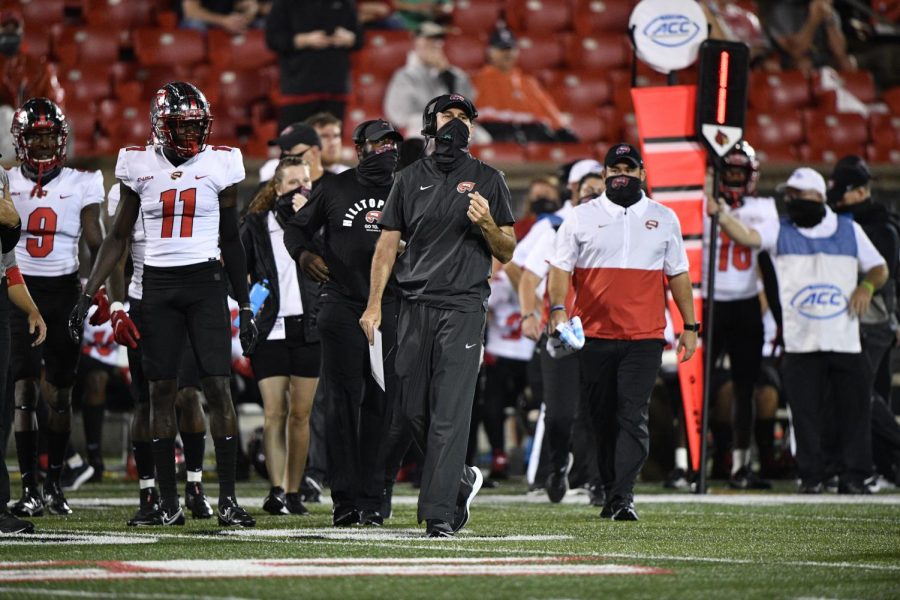Editor’s note: A previous version of this column incorrectly said WKU is being sued over alleged Title IX violations when WKU is actually under investigation over alleged Title IX violations. The story has been updated and the Herald regrets this error.
The week before spring break, a column idea hit me, as they usually do, around 2 a.m. as I was laying down to sleep. I was coming off of a well-received piece I wrote about Mr. Western taking over a Rick Stansbury press conference, so I was brainstorming ways I could continue to think outside the box.
The plan: take a lawn chair over to the parking lot across the street from Nick Denes Field and write a damage report for the foul balls that frequently threaten cars.
I didn’t write it the week before I left because it was a little chilly outside and I figured it would give me some interesting content when I got back to Bowling Green.
I never got back. There’s a chance I never will. Shoot, there’s a chance baseball never will.
I’ll spare you any sugarcoating on this one. The college football season is in danger, and if it gets cancelled, the athletic department at WKU might be up a creek.
The financial picture just doesn’t work. On WKU’s 2018 NCAA revenues and expenses report, ticket sales accounted for $2.4 million in revenue. While basketball accounts for a good chunk of that, football has the highest price per ticket and draws more people than any other sport.
To lose that revenue stream completely due to nationwide cancellations or even strict regulations requiring the football season to be played without fans in attendance for some period of time would be devastating to WKU Athletics.
The next source of revenue that would be lost is guarantees, generally gained from the football program playing the sacrificial lamb against an obviously better opponent. One of the methods of getting the season played currently being discussed, at least in the media, is to eliminate non-conference games.
If that schedule change happens, WKU would be stripped of a pretty solid chunk of change, as money from guarantees came out to over $1.6 million in the 2018 report.
Again, I’m not even going to get into how devastating the probable drop in university revenues is going to be. WKU heavily subsidizes its athletic department, and the university will probably not be able to continue to do so, at least not at the level it currently does.
So, what’s the solution? I honestly have no idea.
Cut sports? Which ones? The university is already under investigation for alleged Title IX violations, and cutting the wrong sports can put the Hilltoppers on the wrong side of federal law.
Universities can only cut so many sports anyway if they want their teams to remain in the NCAA Division I Football Bowl Subdivision, which WKU finished its transition to over a decade ago.
One option that would go beyond WKU would be to break the football and basketball conferences off from all other sports, leaving the non-revenue sports to create more regionalized conference affiliations.
Imagine an olympic sport conference headlined by baseball and softball. The hypothetical league might feature WKU, Eastern Kentucky, Murray State, Middle Tennessee State and Tennessee Tech, among other regional institutions.
Such a plan would eliminate a lot of the travel costs associated with a far-reaching league like Conference USA, as teams wouldn’t have to trek to Texas so much during the regular season.
Regardless of what solutions are found, things are about to get interesting both at WKU and across the nation. Life has changed in a lot of ways, and so will college sports. Hopefully things will work out, but at this juncture I’m not optimistic.
Sports Columnist Matt Stahl can be reached at matthew.stahl551@topper.wku.edu. Follow Matt on Twitter at @mattstahl97.
















